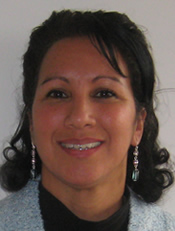
Region 10 Head Start Training and Technical Assistance Topics
Content Areas
States
Administration
|
Head Start Training and Technical Assistance
Literacy
 Maria Wilson
Maria Wilson
Child Development, Early Learning & Literacy Specialist
206-615-2704
maria.wilson@acf.hhs.gov
Maria's Bio
Announcements
Supporting English Language Learners: Regional Conference Call Audio Recording,
Transcript, and Resources
On May 14th, 2008 Christine Cox, from Region X TTA Network, and John Borrero, from
Region II TTA Network presented a conference call on the topic of English Language
Learners.
Along with the recording and transcript you can access materials used for the presentation,
including the PowerPoint, the Head Start Systems and Services Grid, Ten Thing You Can Do, and
the ELL Glossary of terms. The PowerPoint contains a comprehensive list of resources and
research cited during the call.
Recommended Links
Center for Early Literacy Learning (CELL)
CELL promotes the adoption and sustained use of evidence-based early literacy learning practices by early childhood
intervention practitioners, parents, and other caregivers of young children, birth to five years of age, with
identified disabilities, developmental delays, and those at-risk for poor outcomes.
Institute of Inquiry: Fundamentals of Inquiry
Using hands-on experiences and focused reflection, Institute for Inquiry workshops give teachers a thorough
grounding in the pedagogy and practice of science inquiry.
Alaska Native Heritage Center and Alaska Native Knowledge Network
Visit either of these websites for information specific to Alaskan Native Culture.
National Head Start Family Literacy Center
The National Head Start Family Literacy Center (NHSFLC) provides training and technical assistance to
Head Start programs to improve the quality and positive outcomes for family literacy.
Colorín Colorado and Reading Rockets
Reading Rockets, and its Spanish language sister-website, Colorín Colorado, support parents and educators
in helping children "read and succeed."
National Center For Family Literacy
This website gives great information on the Parent Mentor Training.
Talaris Institute
The Talaris Institute provides research on brain development in the first five years of life.
Articles and Publications
Developing Math Games Based on Children's Literature [PDF]
This young child journal article explores the use of children's literature as a tool to provide hands-on opportunities
to apply math concepts and skills. The authors include 'how-to' information as well as examples of games made from
children's literature.
YEAH BUT's That Keep Teachers from Embracing an Active Curriculum: Overcoming the Resistance [PDF]
This article addresses, in practical terms, how to support teachers who find it difficult to implement
even some of the basic components of developmentally appropriate practices in the classroom.
Bilingual Infant/Toddler Environments: Supporting Language & Learning in Our Youngest Children [PDF]
This accessible, researched-based publication aims to assist programs in their development of effective
practices for infants and toddlers exposed to more than one language. While created to support Migrant
and Season Head Start Programs, the information has application for the broader early childhood community.
Curriculum and Assessment Considerations for Young Children from Culturally, Linguistically, and Economically Diverse Backgrounds [PDF]
This article reviews the pertinent research on effective teaching and assessment practices for young children
from diverse backgrounds, as well as offering recommendations for educators and administrators.
|




